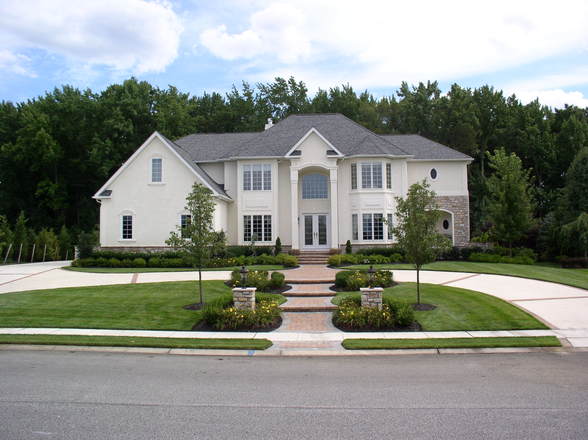With more than 30 years’ experience in the residential and commercial water treatment industry, Mark Nelson is a Class 1 Drinking-Water Operator and a CBWA (Canadian Bottled Water Association) Certified Plant Operator. As founder and president of Nelson Water in Ottawa, Mark focuses on dealing with challenging water treatment system designs for problem water. He also heads the largest water bottling plant in the city of Ottawa with a delivery network throughout the Valley.
How to Select the Correct Size Water Softener / Water Conditioner for your Home
Selecting the right Water Softener / Water Conditioner is not merely a matter of choosing your preferred brand. The size of your water softener / conditioner can very well have a direct impact on the efficiency as well as the effectiveness of your new system. If you choose a water softener / Water Conditioner that is undersized, you will pay a lower price initially, but it could cost you a great deal more in the long run. Conversely too large a device may mean that your initial capital expense will be high and you will not experience savings in the long run. Think of it much like using a canon to shoot house termites. The tool should be proportionate to the need.
With this all in mind, it is a good idea to take some time to properly evaluate your TRUE needs and ascertain the right size water softener / conditioner for your usage requirements.
Establishing Your Domestic Routine
Every household has different water requirements and it is not simply a matter of counting up how many people live on the property. In order to choose the right size of water softener / water conditioner, you will need to study your household routine across all seasons. E.g. the summer or warmer months may result in you doing more laundry or you could have more houseguests over the holidays, which would drive up your water usage in the winter. Bottom line, you will need to get a water softener / water conditioner unit that can handle any increased demands you may place on it. Alternatively, you could choose a device, which allows for an increased number of rinse cycles to remove the dissolved minerals.
Quantifying Your Water Hardness
Another factor in choosing the right size water softener / water conditioner is determining the water hardness levels. Water hardness is measured by the number of grains of dissolved magnesium or calcium per gallon of water. A water treatment professional can perform a test at your home to check these levels. This will allow you to assess the number of grains that will typically accumulate over a 24-hour cycle. In order to calculate this accumulation, you will need to multiply the number of people living in your home by a factor of roughly 66 to 74 gallons. Since that is the average number of gallons of water used by a person according to national statistics, this will allow you to estimate your water usage. You can then multiply this figure by the number of grains of water hardness.
For example, a home with a water supply that has 10 grains of hardness and a family of 5 living in the house will accumulate 3500 grains per day. When you multiply this figure by the number of days between regeneration cycles of a unit, this will determine the minimum capacity needed for your water softener.
Water Softener | Water Conditioner Sizes
Generally softeners | conditioners are rated by resin capacity or how much hardness they can treat. This is different from water hardness itself. Water hardness in according to the CWQA – Canadian Water Quality Association is classified as follows:
Soft Water: 0-3.5 grains per gallon (gpg),
Moderate Water: 3.5-7.0 gpg,
Hard Water: 7.0-10.5 gpg, and
Very hard Water: over 10.5 gpg
These numbers, in reality, vary dramatically region by region. In this area of Ottawa and the Valley for example Low hardness is generally 12 to13 grains or below (which is higher than the highest average nationally), average hardness in Almonte is between 21 to 23 grains and extreme HIGH HARDNESS is 60 grains.
When sizing a water softener, you look at the capacity rating (which is generally based on how many users there are and how big a home is, which = demand between the regeneration cycles).
Generally small water softener units have a capacity of 20,000 grains.
Medium water softener units have a capacity 30,000 grains.
Large water softener units have a capacity 40,000 grains
This means for our example family, a medium size softener with a seven day regeneration cycle would be optimum, however, a small unit with a three day cycle would also suffice. While a small unit would cost less initially, the more frequent regeneration would equate to higher operating costs in the long-term.

